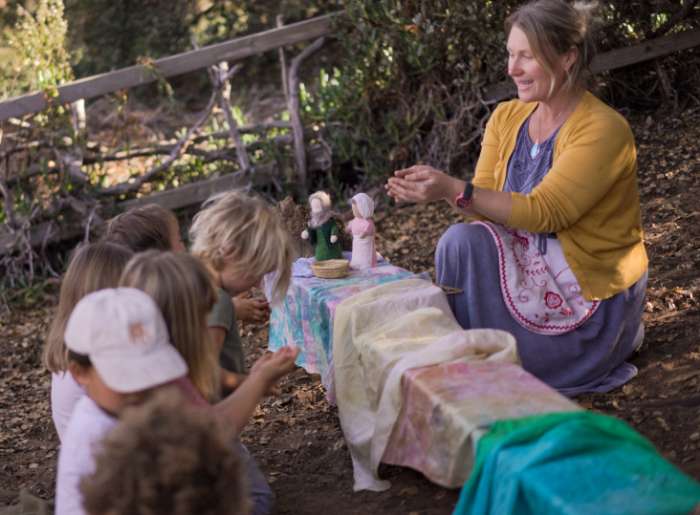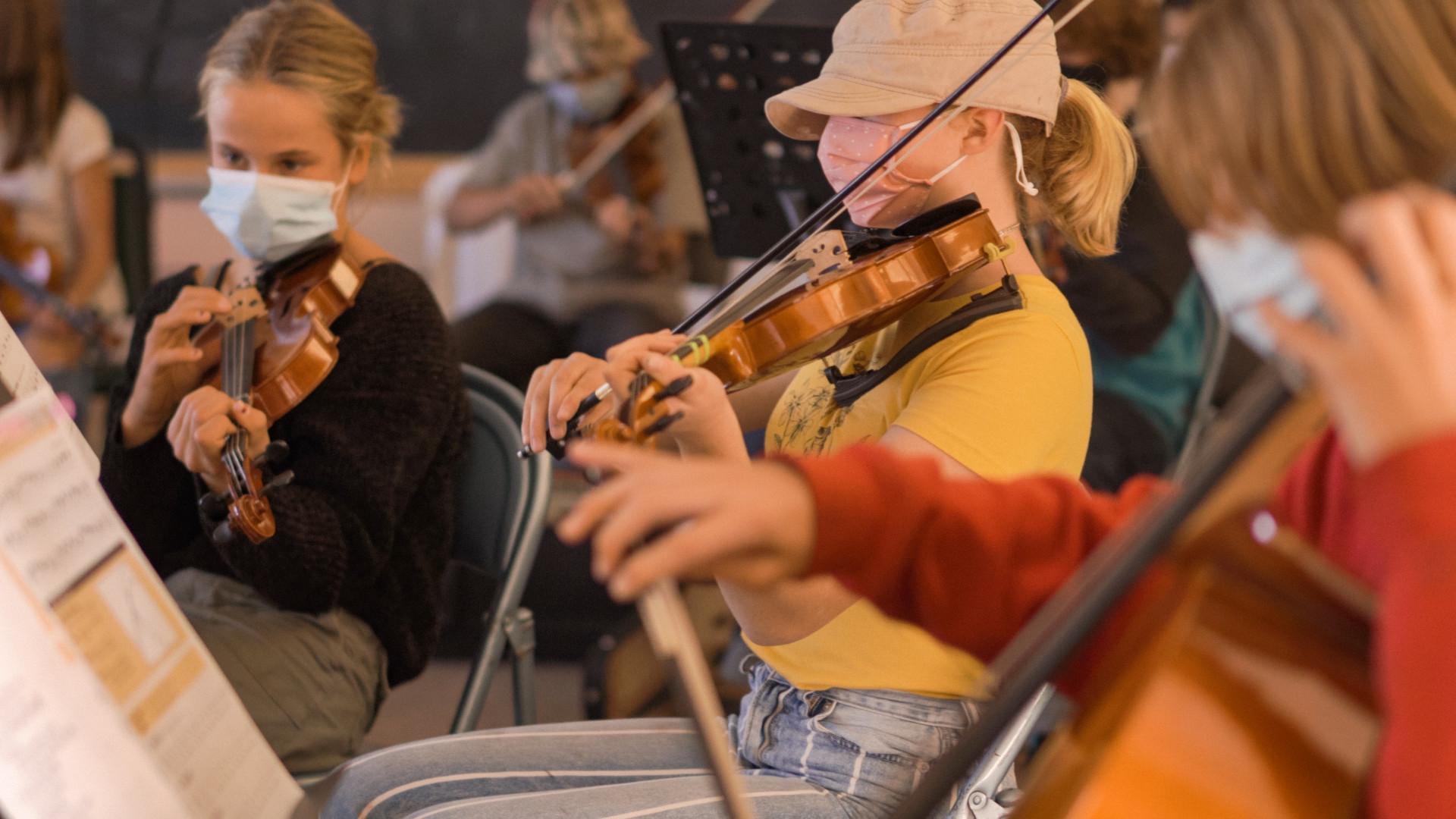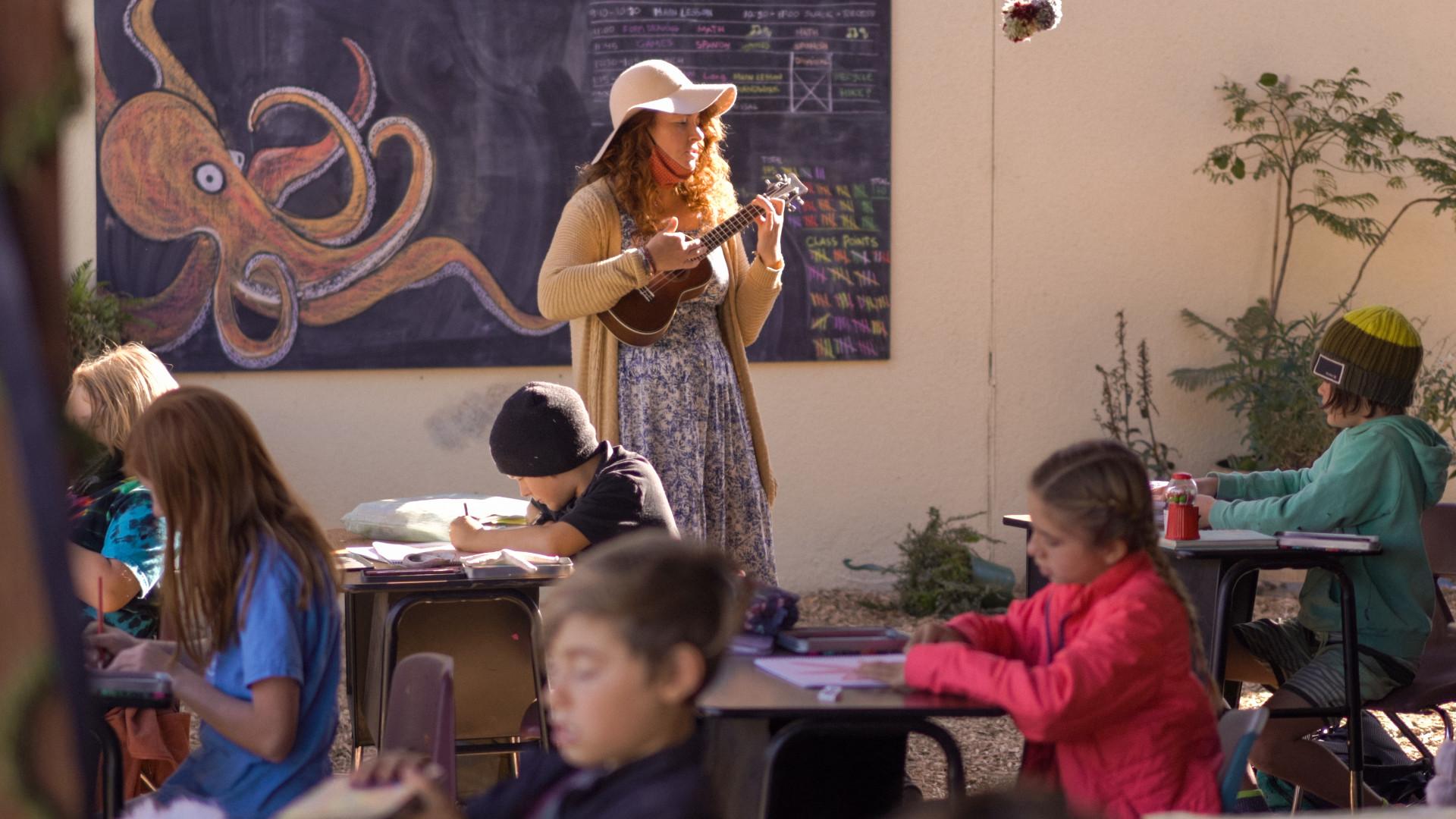Curriculum
Our teachers nurture the imagination in the early years, building a foundation for later abstract thinking, and challenge the intellect throughout the grades. This developmental approach equally emphasizes a strong academic program, creative artistic expression, social development, and attention to the inner life and natural rhythms of the child.
We believe in cultivating a deep appreciation for the diversity of life. Through an integrated, project-based approach to learning, and the celebration of multicultural, seasonal festivals, the child develops a relationship to the earth and the many universal qualities of the human journey. This relationship fosters respect and responsibility for the natural world and humankind.
In the Grades, following morning movement, verse, and warm-ups, each school day begins with Main Lesson, which is taught by the Class Teacher. For the remainder of the day, after snack break and recess, class periods are taught either by the Class Teacher or a Specialty Subject Teacher, passionate experts in their specialty field. This part of the school day includes a lunch break and extended recess period.
Main Lesson (a deeper dive)
Starting in First Grade, students have a “class teacher,” who will ideally stay with them through eighth grade. This practice, where the teachers stays and advances through the grades with the students, is referred to as looping. The core curriculum is taught by the class teacher and is supported by the work of the subject teachers (read about our Specialty Subjects here). The core curriculum and the themes of the subject classes are aligned with the students’ development as they grow. Main Lesson uses immersive techniques of in-depth exploration (known as "blocks") to deliver this core curriculum, which is brought across the year in 4 to 6 week increments (known as a "block rotation"). Subject classes, which typically harmonize with the substance of the block rotation and Main Lesson teaching, run throughout the year.
Each day, Main Lesson begins with movement and rhythmic activities, such as recitation, singing, or playing the recorder, followed by a review of the previous day’s work and a presentation of new material. The students give artistic expression to all Main Lesson subjects – including mathematics and science – through drawing, painting, modeling, sculpting, and so on. Activities may vary from day to day or week to week, according to what the teacher feels is necessary to engage the children and allow the curriculum to have a living presence in the students. The topics for the Main Lessons are chosen to suit the children's development stage.
In Grades One through Three, Waldorf-Inspired education allows the innate human capacities of each child to develop through a holistic approach to learning. These innate capacities – wonder, reverence, attention, curiosity, confidence – form the solid foundation on which the child builds their academic future. In Grades Four and Five, children become increasingly conscious of themselves as members of a community; they have a growing curiosity about the outer world and their place in it. This orientation to the outer world expands further in Grades Six through Eight, when the dawning of the young adult begins.
Students make “Main Lesson books” for their core curriculum subjects. Under the teacher’s guidance, they create their own beautiful and unique textbooks to reflect their learning. This begins quite simply in Grade One; by Grade Eight their books form detailed and valuable references to the subjects they have studied.

Early Childhood Education
Preschool - Kindergarten
Fostering healthy development in each individual child.

Middle School
Grades 6 - 8
Helping children to develop skills they need to contribute to society.




